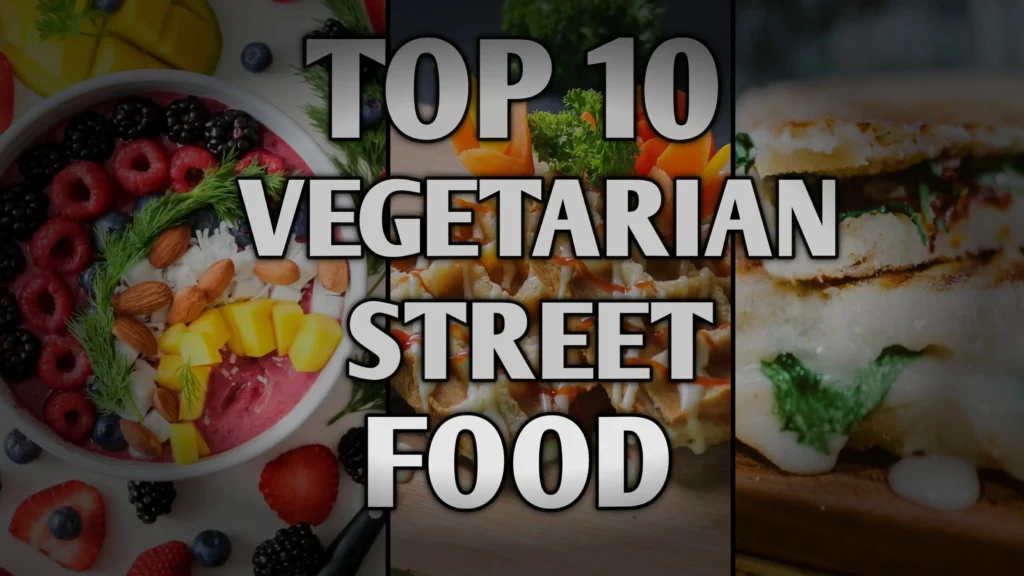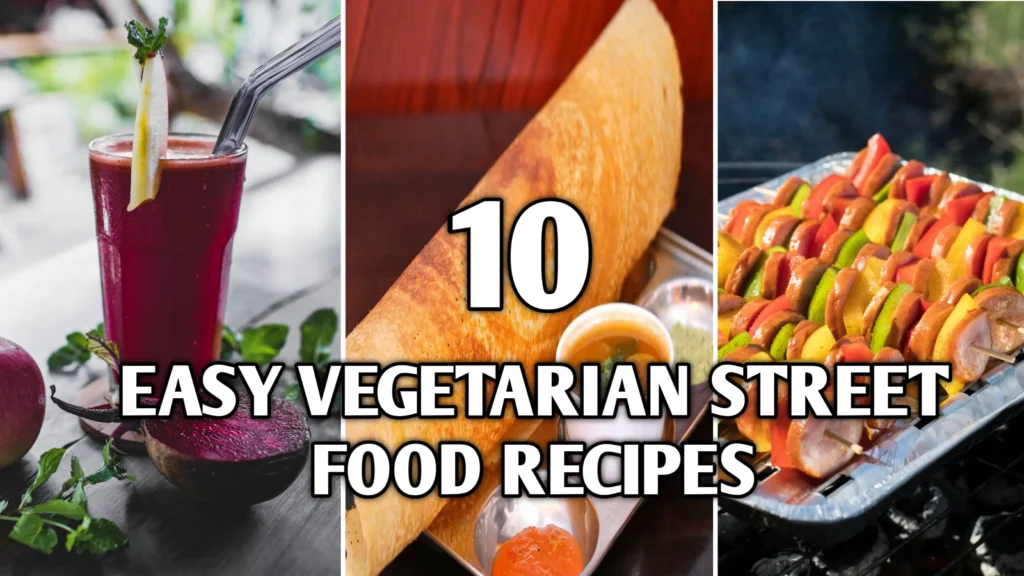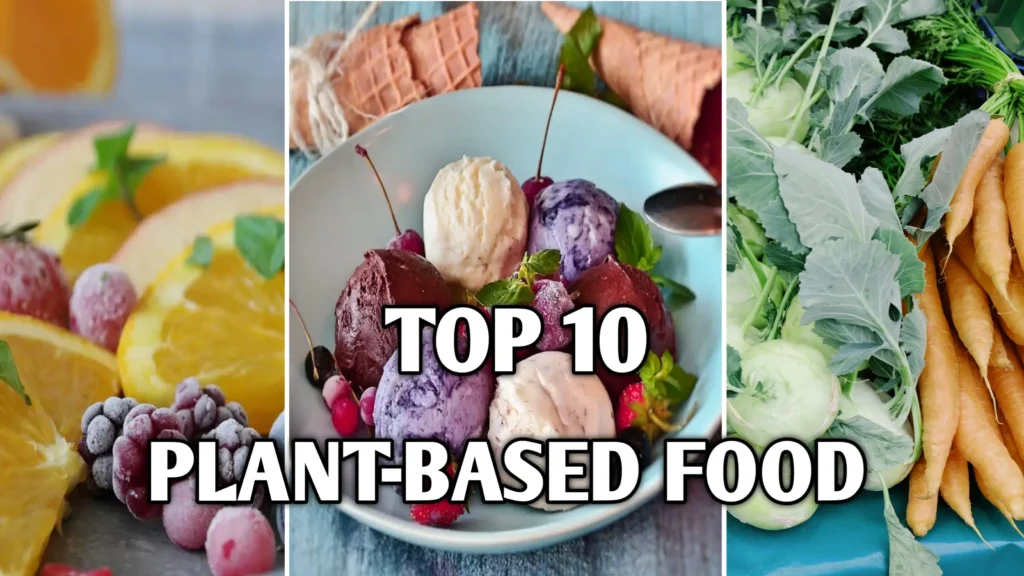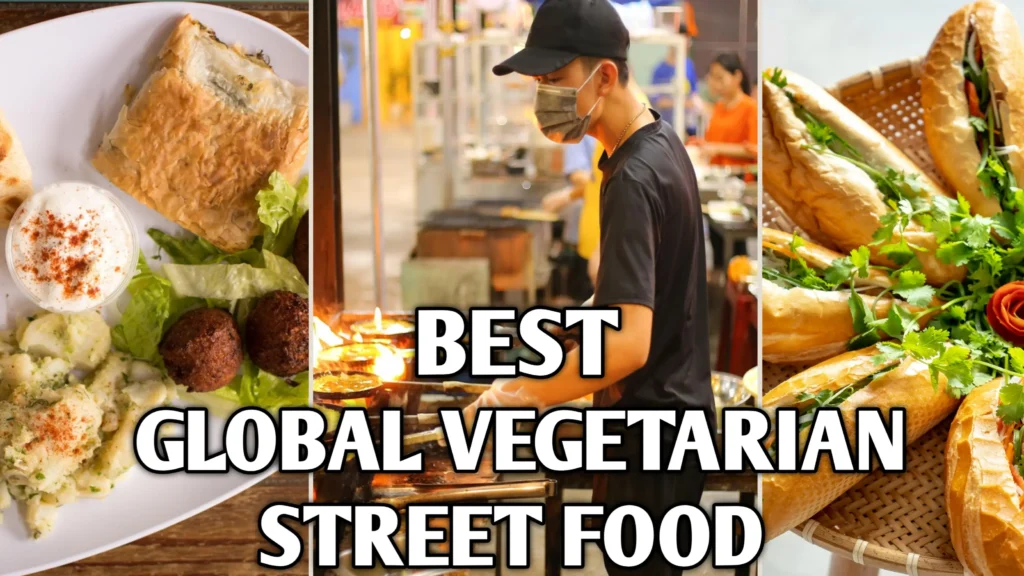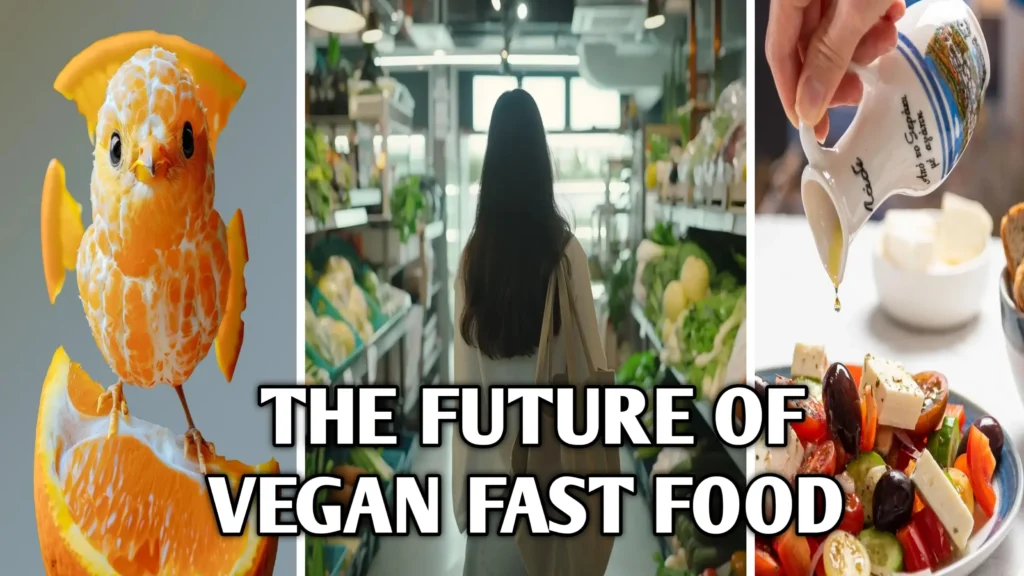
Introduction
Vegan Fast Food is no longer an offbeat niche; it’s rapidly becoming a mainstream staple in global diets. By definition, vegan fast food refers to quick-service meals made entirely from plants, with no animal products whatsoever. This emerging category addresses growing demand for healthier, eco-friendly, and cruelty-free meal options. In recent years, consumer interest has surged: U.S. data shows the plant-based food industry nearly doubled from $4.5 billion in 2018 to $8 billion in 2024, with about 59% of American households now buying plant-based products.
Even on a global scale, trends are striking.
Research predicts the overall plant-based market could reach $85 billion by 2030, and one forecast expects the vegan fast food segment alone to grow from around $24 billion in 2023 to $70+ billion by 2033.
In short, more people are seeking plant-based meals than ever before, driven by health concerns, environmental awareness, and ethical motivations (like animal welfare).
This blog post dives deep into why vegan fast food is poised for continued growth, what trends are powering that growth, and what consumers can expect at the register in the coming years. 😊
Why Vegan Fast Food Is on the Rise

Market Forces and Consumer Demand
- One reason the future looks bright for vegan fast food is simple economics: demand.
As consumer habits shift, even big fast-food chains are investing in plant-powered menu items. - Case in point: Burger King’s Impossible Whopper (flame-grilled vegan patty) has been sold at over 7,000 U.S. locations, and industry observers credit it with giving BK “a plant-based edge” and normalizing meatless options in fast-food culture.
- Similarly, McDonald’s France partnered with Beyond Meat in 2024 to introduce McPlant nuggets at 1,560 restaurants, made from pea protein and priced identically to chicken nuggets.
These moves show major brands are no longer treating plant-based items as limited-time specials, but as core menu offerings. - Beyond big brands, a wave of vegan-native fast-food chains is helping prove the concept.
For example, Odd Burger (a Canadian vegan burger chain with 17 outlets) raised funding to expand by offering burgers and wraps made entirely from vegetables and grains. - Even celebrities are getting involved: Tyson Foods’ Carma (Mike Tyson’s holding company) invested in Mr. Charlie’s, a California-based fast-casual chain with an all-vegan menu.
- These developments signal that vegan fast food is moving from fringe trend toward culinary mainstream.
Menus are being rewritten, and plant-based items are appearing in more drive-thrus, takeout apps, and food courts than ever before. - The overall plant-based food market reflects this momentum: analysts find plant-based options growing in popularity as taste, texture, and availability have improved, and as many flexitarian consumers look for healthier or more sustainable options.
- As one industry report notes, more fast-food chains are now offering plant-based menu options, making vegan choices widely accessible and fueling mainstream adoption.
- The success of high-profile items like Burger King’s Impossible Whopper shows how vegan burgers and nuggets are not just novelties but draw in a wide audience.
- Sherene Jagla of Impossible Foods explains that partnering with Burger King “exposed our brand to a broader, more diverse range of consumers who might not otherwise think about ordering a plant-based option.”
- In practice, this means that a typical fast-food customer today can often request a vegan burger or wrap at many national chains, or find fully vegan QSR restaurants in growing numbers.

In fact, a recent report estimates the vegan fast food market could hit $70.4 billion worldwide by 2033.
- Rising curiosity about plant-based diets – from flexitarians, foodies, and even some meat lovers – is translating into real sales and more innovation on menus across America, Europe, Asia, and beyond.
- Consumers themselves are not the only drivers. Restaurants and investors see profits in plant-based menu items.
- According to market research, the global demand for plant-based meals has spurred fast-food giants to respond.
- Beyond Meat and Impossible Foods now have partnerships with dozens of chains (from Del Taco to Starbucks to Dunkin’), and new brands like Plant Power Fast Food (California) and Veggie Grill (US) continue to open locations.
- In short, Vegan Fast Food is going mainstream because customers want it, and the industry is listening.
The convenience of fast service – combined with health and eco benefits – means more people can eat plant-based on busy days, accelerating the market growth we see today.
Key Plant-Based Food Trends Shaping Fast Food’s Future
Alternative Proteins Take Center Stage
Looking ahead, several emerging food trends will shape the vegan fast food landscape.
First, alternative proteins remain front and center. Beyond soy and pea protein, companies are experimenting with fungi (mushroom-based patty mixes), legumes (chickpeas, lentils), and even hybrid formulations that blend plant ingredients with small amounts of cultured (lab-grown) meat.
For example, the National Restaurant Association’s 2025 forecast highlights functional mushrooms (valued for nutrition and flavor) popping up not just in bowls but in burgers and sauces, and an overall expansion of diverse plant proteins as key trends.
At the same time, pioneers like Juicy Marbles (plant-based steaks) and cultivated-meat startups suggest the line between “meat” and “vegan” will keep blurring.
Some firms are even creating hybrid products that combine plant protein with cultured meat or dairy via precision fermentation.
These innovations mean future vegan fast food could include very realistic-chicken nuggets, porkless bacon, or even seafood-like burgers made from algae or yeast.
Return to Whole-Food Ingredients

Another trend is a return to simpler, whole-food ingredients.
Despite all the buzz about hi-tech ingredients, many consumers are gravitating toward minimally processed plant foods.
- Whole grains, beans, and fresh veggies are making comeback appearances in fast-casual menus.
- As one forecast notes, there’s renewed interest in “whole-food plant-based diets” – think hearty salads, grain bowls, veggie wraps and soups – alongside the new lab-grown items.
- In practice, this means a veg-friendly taco might focus on black beans and spices, a falafel wrap might emphasize fresh herbs, and vegan fast-food pizza might pile on tomato sauce, veggies, and cashew cheese rather than faux pepperoni.
- In short, many plant-based trends point to authentic, satisfying flavors rather than novelty alone.
Texture, Taste & Sustainability
Texture and taste improvements are also a trend in their own right. Early veggie burgers often disappointed meat-eaters with bland flavor or crumbly texture.
- But recent generations of plant-based burgers are engineered for juiciness and umami.
- Brands report that consumers increasingly can’t tell plant patties from beef or chicken versions.
- Fast Company calls this the era when “plant-based alternatives become indistinguishable from their animal counterparts.”
- Restaurant chains have invested heavily in R&D to perfect these recipes, sometimes using techniques like fermenting plants or blending in heme (fermented soy) to create “bleeding” burger patties.
- Meanwhile, ready-to-eat vegan side items have improved: think crispier fries (air-fried or kelp-fried), better vegan cheese melts, and dairy-free sauces.
- All of these upgrades make plant-based fast food appealing not only to vegans but to curious omnivores, pushing the trend further into the mainstream.
- Sustainability is also a key driver and trend. Fast-food chains are noticing customer interest in eco-friendly packaging and supply chains.
- Expect to see more compostable wrappers, recycled containers, and transparency labels (like carbon footprint info) on menus.
- For instance, brands may start using seaweed-derived plastics or zero-waste cooking methods as selling points.
- And locally sourced produce is becoming common in some vegan fast-casual spots, aligning with consumers’ environmental values.
- While not all of these are “tasty trends” per se, they influence menu design and brand image in this market.
Global Flavors & New Formats

New product trends are popping up too – from plant-based dumplings and bao buns to innovative vegan seafood, all finding their way into fast-casual formats.
- Whole Foods’ trend forecast even predicts “plant-based aquatic ingredients” and clever vegan dumplings as hot items in 2025.
- Some Asian-inspired concepts offer vegan poke bowls with marinated tofu instead of fish, or sushi rolls filled with seasoned tempeh instead of tuna.
- Even dessert corners are getting plant-powered: new dairy-free frozen desserts, sorbets, and pastries use ingredients like oat cream or coconut milk.
- Essentially, the plant-based food trends of the next few years – mushrooms, pickling, premium meat analogs, functional foods, and more – will all find their way into convenient fast-food forms.
- This fusion of innovation means the fast food section at your grocery or the menu at a drive-thru could look unrecognizable in just a few years. 😉
- Part of this evolution is driven by dedicated vegan fast food startups. For example, Amy’s Drive-Thru (in California) offers a classic fast-food menu (burgers, fries, shakes) that happens to be 100% vegan.
Its signature “Amy Burger” uses a plant-based patty and dairy-free cheese, yet looks and eats like a familiar fast-food burger. - In other cities, “plant-based only” chains like Plant Power Fast Food or Veggie Grill experiment with spicy tempeh sandwiches, jackfruit BBQ sliders, and other creative items.
- These grassroots innovators are testing new recipes and proving that vegan fast food can be diverse and craveable.
- As consumers respond positively, traditional fast-food giants are likely to adapt further – a snowball effect that will bring ever more plant-forward innovations to the quick-serve industry.
🌯 Into Plant-Based Food? Check Out These 2025 Street Food Trends!
If you’re passionate about plant-based eating, you’ll love these top street food trends taking over the U.S. in 2025. From vegan tacos to dairy-free desserts, discover what’s hot and tasty this year!
🌱 See the Top 10 Plant-Based Trends🍽️ Also check out our Food Trends section for more plant-forward inspiration!
Healthy Fast Food Options: Nutritional Benefits and Caveats

Nutritional Benefits
- For many diners, a big question is: Are vegan fast food options actually healthier?
On one hand, plant-based items often pack more fiber, vitamins and phytonutrients than their greasy counterparts. - Studies have shown that fast-food meals marketed as vegan tend to have significantly lower saturated fat and sodium compared to meat-based dishes.
- For example, one cross-sectional analysis of fast-food menus found Vegan Fast Food items averaged about 6.3 g saturated fat (vs 11.6 g in beef items) and 800 mg sodium (vs 1,280 mg in meat items).
- Another global study concluded plant-based meals often deliver more fiber and carbohydrates while cutting down protein and salt.
- In practical terms, that can mean a vegan burger and fries combo might have less artery-clogging fat and fewer milligrams of salt than a beef burger meal.
- Nutrition experts also point out that eating more plants is linked to long-term health gains.
- Dietitian Melissa Keeney notes that overall, plant-rich diets have been tied to lower risk of heart disease, lower blood pressure, improved immune function, and reduced risk of diabetes and certain cancers.
- In other words, making vegan fast food part of a mostly plant-based pattern can contribute to those benefits.
- And because such meals often include whole grains, beans, and vegetables, they can also be more filling and nutritious.
Caveats & Considerations
However, it’s important to be realistic.
- Fast food of any kind is typically more processed and energy-dense than home-cooked meals.
- Some plant-based burgers (especially early-generation ones) have nearly as much saturated fat or calories as meat burgers, depending on how they’re made and what sauces and buns are used.
- Keeney cautions that the latest vegan burgers at McDonald’s or Burger King can have “comparable levels of saturated fat and protein” – and in some cases even higher sodium – than the beef versions.
- In other words, swapping to a vegan nugget or patty doesn’t automatically make the meal “healthy.”
- Fast food calories can still add up, and some vegan options use palm oil or coconut oil which are high in saturated fat (even if they contain no animal cholesterol).
- So, when thinking about healthy fast food options, context matters.
- A side salad and black bean burger may be better for your heart and waistline than a fried chicken sandwich, but a deep-fried tofu burger is not a health food just because it’s vegan.
- The best approach is to look at nutrition info (many chains now list calories/fat online) and to balance fast-food meals with other plant-based foods during the week.
- On the plus side, most vegan fast food will be free of dietary cholesterol and might include more fiber and phytonutrients – a net win for many flexitarians.
- As one dietitian put it, “eating more plant-based meals may improve sleep, quality of life, immune function and digestive health”, so even occasional vegan fast-food meals can fit into a healthy lifestyle.
- In summary, vegan fast food can be a healthier choice than traditional fast food, but it still requires smart selection: load up on veggies, choose whole grains, and watch added sugars or salts.
Finding Vegan Fast Food Near Me: Apps, Tools, and Tips
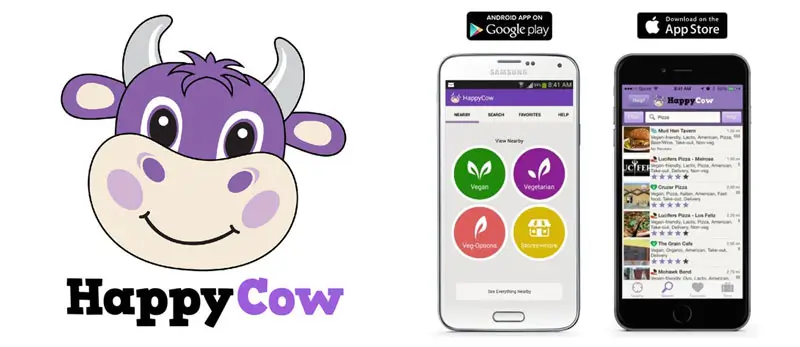
Recommended Apps
Hunting down nearby vegan fast food has never been easier thanks to technology.
If you’re wondering “Where can I find vegan fast food near me?”, a few tips and apps can help.
- The tried-and-true option is HappyCow – a long-standing online directory (and app) dedicated to vegan, Vegan Fast Food and vegetarian eateries worldwide.
- HappyCow lets you search by location or zipcode and filters results into 100% vegan restaurants, vegetarian, or “veg-friendly” places with vegan menu options.
- It’s easy to use: just plug in your city and out come reviews and ratings for local plant-based venues.
- Another app, Abillion, crowdsources user reviews for plant-based foods and restaurants; it boasts millions of reviews globally and even lets users earn credits for leaving feedback.
- You can browse Abillion to find the highest-rated vegan fast-food joints or filter by categories.
- Other handy resources include Vegan Friendly (an app that helps find the closest vegan spots and often offers discounts) and Vanilla Bean (which helps you find vegan and sustainable businesses nearby).
- In general, searching Google Maps or Yelp with the keyword “vegan” or “plant-based” will often pull up local fast-food spots – and many chains now tag their own menus online with “vegan” icons.
- Delivery apps like Uber Eats or DoorDash also allow filtering by “vegan” or “plant-based,” making it possible to get a vegan burger or taco delivered.
- For example, you might find that Taco Bell has a veggie power bowl, or that Chipotle offers sofritas (tofu) for salads and bowls.
🌍 Discover Vegan & Vegetarian Restaurants Near You
Looking for plant-based dining wherever you are? HappyCow helps you find the best vegan and vegetarian restaurants, cafes, and stores worldwide—trusted by millions!
🥗 Explore HappyCow NowCommunity Tips
Engaging with online vegan communities (forums, Instagram) can also tip you off: users often share secret-menu hacks (like customizing a sandwich to be vegan) or new plant-based items they discover in their city.
In short, whether you’re in a big city or a small town, these digital tools bring vegan fast food near me within a few taps.
Many consumers even report checking Instagram hashtags like #veganfastfood or local vegan Facebook groups for up-to-the-minute tips on the latest plant-based pop-ups or food trucks.
The bottom line: you no longer have to guess if a place is plant-based; just reach for your phone.
With these apps and some strategic searching, enjoying plant-powered burgers, wraps, and bowls “near me” is more convenient than ever.
Innovations and Technology on the Horizon

Precision Fermentation & AI
Even if lab-grown meat takes longer to commercialize, other biotech is already here.
- Precision fermentation uses microbes to produce ingredients like dairy proteins or egg substitutes.
- For example, firms are making vegan mozzarella that “stretches and melts” like dairy cheese by fermenting fungi, or egg whites by fermenting yeast.
- Once those hit menus, expect plant-based Vegan Fast Food to include items like mac-and-cheese with real-function cheese melt, or breakfast sandwiches with chickpea-protein “egg” patties.
- We may also see 3D-printed foods and AI-generated recipes eventually.
- Some innovators are experimenting with printing complex structures Vegan Fast Food (like a steak’s muscle fibers) out of plant or fungal protein.
- Meanwhile, artificial intelligence is starting to assist chefs in formulating plant-based recipes, optimizing spice blends, and even suggesting menu personalization.
Operational & Packaging Innovations
Meanwhile, even relatively low-tech innovations can make an impact.
- For instance, some fast-food chains are testing edible packaging (like seaweed wrappers for burgers) or ultra-efficient cooking methods that reduce waste and energy use.
- Others are leveraging blockchain for ingredient traceability – giving customers full transparency on where every vegetable or grain came from.
- In terms of service, we’ll likely see more automated kitchens or robotic fryers that can handle plant-based menu items without cross-contamination.
- One example: some restaurant startups are ordering robots that can make plant-based burgers and fries with minimal staff intervention, potentially lowering costs and making fast vegan food cheaper in the long run.
- In essence, the same tech trends revolutionizing traditional food (biotech, automation, IoT) will spill over into the plant-based space.
- These advances mean that vegan fast food near me could soon become indistinguishable from classic fast food not just in taste, but in convenience.
- And because many of these technologies emphasize sustainability (e.g. less land use, lower emissions), they align well with the ethos driving the vegan fast food trend.
- The upshot: next decade’s fast-food chains will likely feature high-tech innovations alongside kitchen basics, all in service of faster, tastier, more sustainable plant-based meals.
Quick Tips for Vegan Fast Food Success
- Check ingredients. Don’t be shy about asking if something is truly vegan (e.g. some items may have honey or mayo). Many chains label vegetarian items, but confirming avoids surprises.
- Customize your order. Many restaurants will substitute (like lettuce wraps instead of buns, or falafel instead of chicken). Ask for extra veggies or plant-based proteins to round out the meal.
- Use apps and maps. Before heading out, search on HappyCow, Google Maps, or Yelp with “vegan” or “plant-based” keywords to find the top-rated spots near you.
- Watch out for “hidden” non-vegan. Things like sauces, butter, or creamy dressings might contain dairy. Ask for dairy-free or plant-based alternatives (many places offer vegan mayo or tofu-based dressings).
- Balance indulgence. It’s okay to treat yourself! Just remember to balance vegan fast-food meals with whole foods elsewhere in the day (fruit smoothies, salads, legumes) for best health results.
The Path Forward: Challenges and Opportunities

Challenges
While the growth of vegan fast food is exciting, the road ahead will have hurdles too.
One challenge is affordability: currently, many plant-based items cost a bit more than their meat counterparts (due to newer ingredients and scale). Some customers note sticker shock: a Beyond Burger might cost $1–2 extra.
- On the flip side, as production scales up and competition grows, prices may come down.
- Another challenge is preserving nutrition – as noted earlier, many vegan fast options still pack high salt or refined carbs.
- Restaurants will need to innovate to keep fast food both plant-based and genuinely healthy (for example, air-frying instead of deep-frying tofu or using whole-grain buns).
- Supply-chain issues can also arise. For purely plant-based chains, sourcing enough diverse veggies, grains, and novel proteins year-round can be tricky (particularly for small startups).
- However, large chains can leverage their scale to negotiate bulk plant-protein supply, which should only improve with growth.
- Consumer acceptance is also uneven by region: rural areas may still see few vegan options, so “vegan fast food near me” can vary widely depending on where you live.
- City dwellers enjoy more choices, while smaller towns may have just one or none.
- This urban/rural gap may close slowly as national chains expand vegan menus.
Opportunities
Despite these challenges, the opportunity is massive.
- Health and environmental trends won’t reverse, so demand for plant-based meals should keep climbing.
- Smaller chains and independent startups have opportunities to innovate with unique regional flavors (imagine vegan fast-food concepts based on Mexican, Indian, or African cuisines).
- Meanwhile, large chains will continue experimenting – KFC is trialing plant-based chicken in some markets, Dunkin’ revamped its breakfast sandwich with plant sausage in 2023, and Papa John’s has a vegan pizza in trials.
- Each success story encourages more investment.
- Looking ahead, one clear trend is that “fast food” will no longer mean “always unhealthy.”
- As Professor Marion Nestle notes, even traditional fast food is evolving under health and environmental pressure.
- In future, it’s easy to imagine a McDonald’s whose menu in 2030 includes an Impossible burger, a chickpea McNugget, and a salad made from regenerative-farmed greens, side by side with old classics.
- The lines between fast food, fast-casual, and fast(er) health food are blurring.
- The future of plant-based Fast Food is one where convenience meets conscious eating – and savvy businesses are racing to get there first.
Key Takeaways
- Massive Growth: The vegan fast food market is booming. Analysts project tens of billions in global sales by 2030, reflecting huge consumer demand.
- Big Chains, Big Impact: Major restaurants (Burger King, McDonald’s, etc.) now feature plant-based burgers and nuggets, giving scale to the vegan trend.
- Innovation Everywhere: Everything from lab-grown chicken to mushroom-based patties and seaweed “fries” is in development, meaning menus will keep expanding.
- Healthier Choices (Usually): Vegan fast food often cuts saturated fat and sodium compared to meat versions, but watch out for high sugar and processed ingredients.
- Finding Vegan Options: Use apps like HappyCow or simply search “vegan near me.” Many local and national chains now offer vegan-friendly menus, so it’s easier than ever to enjoy plant-based meals on the go.
- Stay Flexible: Embrace creativity. Try customizing orders (for example, adding avocado or extra veggies), and don’t be afraid to experiment. A few plant-based swaps each week can add up to big benefits for health and the planet.
FAQs
Q2: Are vegan fast food options healthier than traditional fast food?
A: Often, yes – but it depends. Many vegan fast-food items have less saturated fat and no cholesterol compared to meat-based counterparts. As noted earlier, studies found vegan burgers and similar items have about half the saturated fat and sodium of a regular beef burger. They also tend to have more fiber if whole grains or beans are used. This means vegan fast food can be a healthier choice in moderation. However, remember that all fast food (vegan or not) can be high in calories, fat, and salt. Some plant-based burgers use oils or breadings that are still energy-dense, and some vegan sauces or desserts pack sugar. The trick is to balance. For best health, pair a vegan fast-food meal with extra veggies or fruit throughout the day, and watch out for hidden sugars or salts. A vegetable-packed burrito is better than a fried vegan burger, for instance. In short, vegan fast food can help you eat cleaner, but smart ordering (like asking for grilled instead of fried, or extra salad instead of chips) makes a big difference.
Q3: How can I find vegan fast food near me? Are there apps or websites?
A: Absolutely! The plant-based revolution has been accompanied by tech solutions. The most popular resource is HappyCow – an app and website that lets you find nearby vegan or vegetarian restaurants worldwide. Just enter your location and it will map out local options, often with reviews and directions. Another is Abillion, which has user reviews of vegan products and eateries. Vegan Friendly and Vanilla Bean are newer apps focusing on finding vegan restaurants (including fast-food outlets) in your area. You can also use Google Maps or Yelp: type “vegan fast food” or “vegan restaurant” in the search bar, and the map will highlight places with vegan-friendly menus. Many delivery apps like Uber Eats, DoorDash or Grubhub have filters for “vegan” or “vegetarian” eateries as well. The key is simply using the tools at hand – one search or a tap on an app can reveal the best plant-based quick bites nearby.
Q4: What are some popular fast-food chains offering vegan options?
A: The list grows every year. For burgers, Burger King’s Impossible Whopper is famous (vegan patty + no mayo). Beyond Meat and Impossible patties also appear at BurgerFi, Sonic (in some markets), and Red Robin. McDonald’s has the McPlant line (sold in select countries), and also McCafe’s Dairy-Free Vanilla Shake and fruit options. KFC has tested Beyond Fried Chicken nuggets in the U.S. and continues vegan chicken sandwiches in some locations. Even pizza chains are joining in: Domino’s UK offers a vegan cheese option, Papa John’s has plant-based sausage, and many have dairy-free toppings. Taco Bell, Chipotle, Subway, and Panera all have vegan-friendly items (like beans, salsa, and veggie bowls). Don’t forget health-focused fast-casual chains: Sweetgreen or Cava have vegan bowls by default, and vegan-only restaurants like Plant Power Fast Food, Veggie Grill, or even new celebrity-backed spots (like the vegan Soul Bowl by SoulCycle co-founder) cater to the fast-food crowd.
Q5: Why are so many fast-food companies adding plant-based menu items?
A: Several reasons. First, consumer demand: a significant portion of people are now vegetarians, vegans, or flexitarians (those cutting back on meat). Brands see this as a market opportunity. Second, public image: offering vegan options signals that a company cares about health and the environment, which appeals to younger customers. Third, trialing plant-based items lets a chain experiment with new ingredients and keeps their menu feeling fresh and modern. And in many cases, it simply boosts sales: studies have found plant-based options can draw in customers who might skip the restaurant otherwise. So far, results are encouraging enough that chains keep expanding their vegan offerings. It’s a way to innovate without overhauling the entire business model – just swap a few ingredients here and there and you can quickly have a “new” item that taps into current trends.
Q6: Is vegan fast food more expensive than regular fast food?
A: It can be. Right now, many plant-based burgers and substitutes cost slightly more at the register. That’s often due to ingredients being newer or less mass-produced than conventional meat. However, prices are gradually coming down as demand grows and production scales up. Some chains try to keep prices the same (for example, McPlant burgers were priced like the beef burger in some countries). Also, consider that vegan meals often focus on plants (beans, grains, veggies), which can be less expensive inputs than meat. In the near future, economies of scale and competition (with more brands like Beyond and Impossible in the market) should bring costs closer together. For now, if budget is a concern, watch for deals: many vegan chains participate in promos, and some fast-food places have value-menu style vegan items (like small bean burritos or vegan soup combos).
Conclusion
The landscape of fast food is changing before our eyes. What was once a landscape of Vegan Fast Food burgers, fries, and soda is steadily transforming into one that includes jackfruit tacos, mushroom sandwiches, falafel bowls, and other plant-based surprises. Vegan fast food is no longer just for vegans or health nuts; it’s a mainstream dining option fueled by savvy consumers, innovative chefs, and even big corporate players. From better-for-you ingredients to cutting-edge food tech, the trends we’ve explored show that eating on the fly can be good for the planet and our bodies too.
We hope this deep dive leaves you excited (and perhaps a bit hungry) to try the new wave of plant-powered eats. Ready to see for yourself? Next time you reach for your phone or keys, why not search for a vegan burger joint or swap out chicken for tofu in your order? Let us know what delicious vegan fast food discoveries you make – drop a comment below with your favorite plant-based meal or a hidden gem in your city. If you found this guide helpful, please share it with friends or family who are curious about healthy fast food options.
And don’t forget, the conversation isn’t over: what else do you want to know about vegan fast food? We’ll be following up on the latest plant-based trends, so stay tuned and stay hungry for knowledge! 🌱🍔

